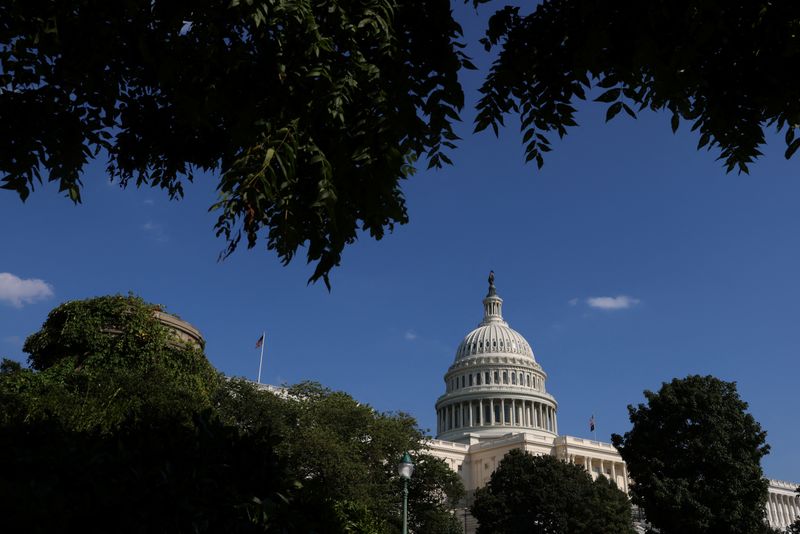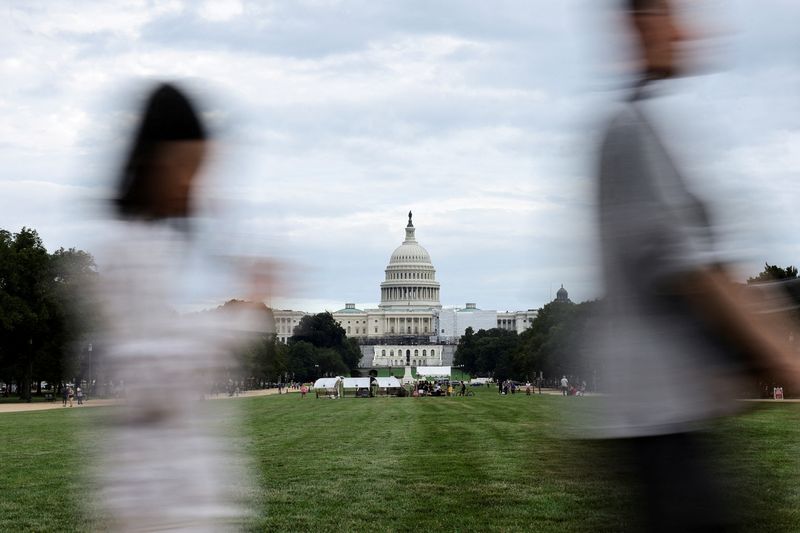By Patricia Zengerle
WASHINGTON (Reuters) - The U.S. House of Representatives voted 393-27 on Tuesday to send its version of a sweeping bill setting policy for the Pentagon to conference with the Senate, paving the way for negotiations to narrow the deep divide between the two chambers over issues like abortion access and diversity initiatives.
The massive bill - this year's National Defense Authorization Act, or NDAA - authorizes a record $886 billion in military spending. It typically passes both congressional chambers in a largely bipartisan way.
But this year, the Republican-controlled House passed its version of the bill by a narrow 219-210 majority, with Democrats voting no after hard-right Republicans added amendments addressing hot-button social issues such as a repeal of a Pentagon policy of reimbursing expenses for service members who travel to obtain an abortion.
The broad support to send the measure to conference reflected many Democrats' hope that a conference with the Democratic-majority Senate would yield a more moderate NDAA.
The Senate passed its version of the bill, without such provisions, by 86-11.
Representatives from the two chambers will now conference in order to iron out differences between the two versions of the legislation and write a final bill. That in turn must pass both chambers before being sent to the White House for President Joe Biden to sign into law or veto.

The NDAA, which is separate from the appropriations bills setting government spending levels, governs everything from pay raises for the troops - this year's will be 5.2% - to purchases of ships and aircraft to policies such as support for Ukraine.
It is one of the few major pieces of legislation that Congress passes every year, having become law annually since 1961.
